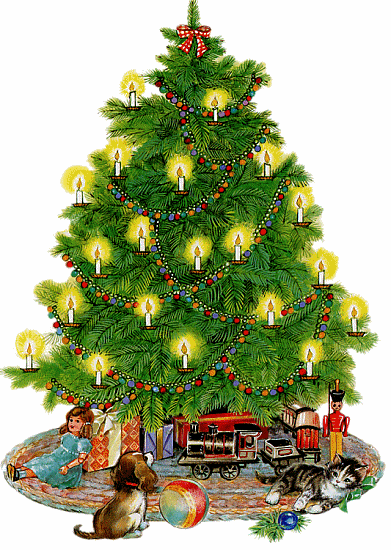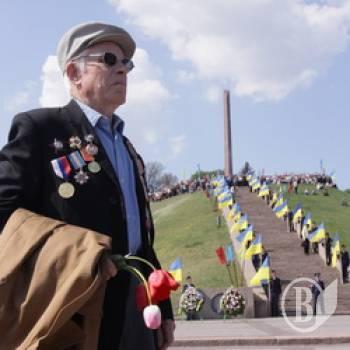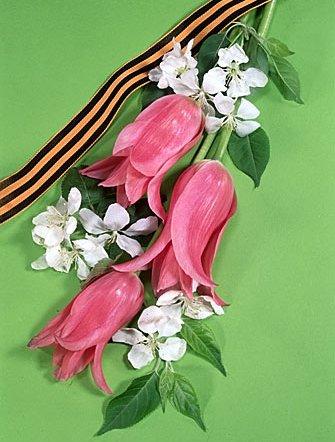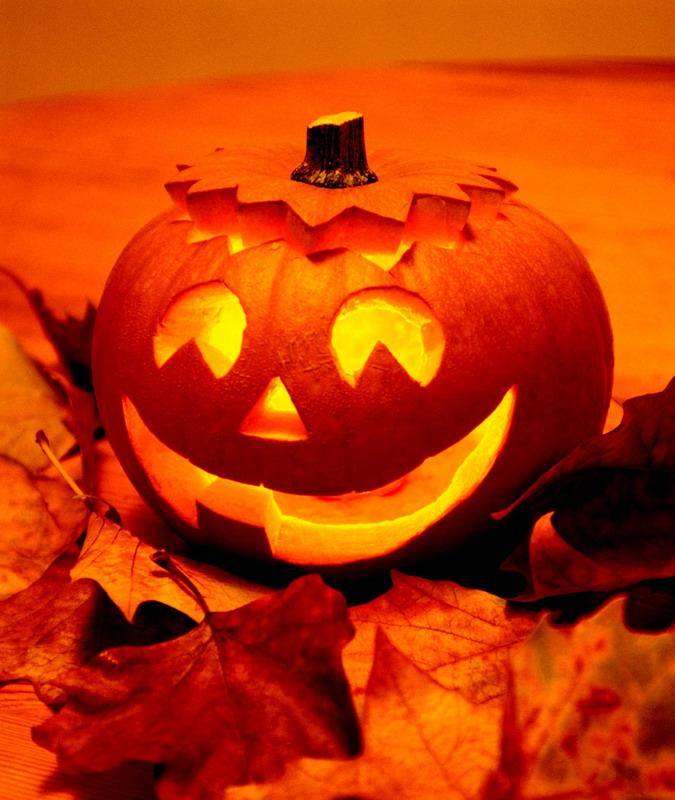
практика / 0206875_3FE20_plan_konspekt_uroku_z_angliysko_movi_v_6_klasi
.doc
Тема уроку: The Great Holiday
Цілі уроку: Практичні:
1) навчити учнів одержувати основну інформацію з прочитаного тексту;
2) розвивати вміння монологічного мовлення учнів.
Освітня: прилучати учнів до культури мови, що вивчається, до традицій рідної країни; розширювати їх філологічний кругозір.
Розвиваюча: розвивати пам’ять, увагу, мислення та мовленнєві здібності учнів.
Виховна: виховувати патріотичність учнів, шанобливе ставлення до традицій свого народу.
Обладнання уроку: малюнки, картки зі словами, картки з тестовим завданням.
Схематичний план уроку
-
Початок уроку. Організація класу. Повідомлення цілей уроку. 2хв
-
Фонетична зарядка. 6хв
-
Підготовка до читання тексту для створення в учнів установки на розуміння основного змісту. 12хв
-
Читання тексту. 7хв
-
Контроль розуміння прочитаного тексту. 15хв
-
Повідомлення домашнього завдання. Підсумки уроку. 3хв
|
Етапи. Прийоми. |
Хід роботи |
|
Етап 1. Початок уроку. Організація класу. Повідомлення цілей уроку. Прийом: бесіда з учнями класу. Етап 2. Фонетична зарядка. Прийом 1: хорове та індивідуальне повторення звуків / /, / /, / / за вчителем. Прийом 2: слухання скоромовки у виконанні вчителя. Прийом 3: хорове та індивідуальне повторення скоромовки за вчителем.
Етап 3. Підготовка до читання тексту для створення в учнів установки на розуміння основного змісту. Прийом 1: бесіда з учнями з опорою на малюнки.
Прийом 2: прогнозування учнями змісту тексту за його заголовком.
Прийом 3: ознайомлення учнів з незнайомими ЛО з тексту шляхом хорового повторення їх за вчителем та перекладу на рідну мову.
Етап 4. Читання тексту. Прийом 1: активне слухання інструкції вчителя. Прийом 2: самостійне читання тексту учнями.
Етап 5. Контроль розуміння прочитаного тексту. Прийом 1: відповіді на запитання вчителя.
Прийом 2: виконання тесту перехресного вибору.
Прийом 3: розвиток умінь монологічного мовлення з опорою на запитання вчителя?
Етап 6. Повідомлення домашнього завдання. Підсумки уроку. Прийом: пояснення вчителем домашнього завдання та запис його у щоденниках. |
T: Good afternoon, girls and boys! I’m glad to see you. How are you today? Is anybody absent? Thank you. So let’s start our lesson! You remember, the previous time we spoke a little about holidays in our life. Today we will continue this pleasant topic and will read an interesting story about the great holiday of our country.
T: First of all, look at the blackboard, please! Here you can see a nice tongue-twister about one of your favourite holidays – birthday. But at first smile, please (wait till everybody smiles), put your tongue between your teeth and repeat after me all together: / /, / /, / /… Masha, please… Dima, please… (every pupil does it). Good for you! Now make you lips as if you are going to kiss your best friend. Very good! Now open your mouth a little bit and repeat after me all together: / /, / /, / /… Oleg, please… Great! Now you are ready for the tongue-twister. At first, listen to me carefully! Her third birthday is on the third Thursday of this month. Now I will read in parts and you will repeat after me all together. T: Her third birthday.. P: Her third birthday.. T: is on the third Thursday.. P: is on the third Thursday.. T: of this month. P: of this month. Very nice! Now read all together the whole tongue-twister… Good! Olena, please… Anna, please… You are great, pupils!
T: Now, my dear girls and boys, I will show you some lovely pictures (Додаток 1). You should look at them carefully and guess what holiday is depicted on each picture. You should tell also if this holiday is celebrated in Ukraine and when, if it is. For example, I show you this picture (New Year). You raise your hand and say: It’s New Year. It is celebrated on the thirty first of December in Ukraine. You can see the beginning of these phrases on the blackboard (It is…. It is celebrated on the …in Ukraine.) Is everything clear? Let’s start! T: It is the first picture. What holiday is here? Natalia, you are welcome. P: It is Women’s Day. It is celebrated on the 8th of March in Ukraine. T: Thank you very much, pupils! So we’ve remembered what traditional holidays are celebrated in Ukraine. T: We are going to read an interesting story next. Its title is written on the blackboard in capital letters. Can you read it aloud, Andrew? (THE GREAT HOLIDAY) Pupils, what do you think, which holiday is described in the text you are going to read? Think carefully, which holiday is one of the most important in our country? … That’s nice! You are very smart! T: Now look at these cards, please. Here you can see some words and expressions which will help you to understand the story better. Repeat after me all together, please! T: in honour of / / P: in honour of. T: This expression means: на честь. The next one is: to win a victory. Can you guess what it means?... You are right! …the Great Patriotic War; to perish – загинути; a member of a family; the Tomb of the Unknown Soldier /t /, / /; a participant / /; an order / /; a medal / /; a parade / /; merry; a tear / /; a salute / /.
Pupils, you are ready to read the text now. Open your textbooks at p.68, please. The text is not very big but interesting and useful. Read it silently, remember the most important information from the story and be ready to answer my questions. You have 5-6 min. for reading.
T: Well, it seems to me you have finished reading, haven’t you? So tell me, please
T: Very good for you, pupils! Now take these cards, please. Your task is to match the beginnings and the endings of the sentences. After finishing it you will see the main information from the story you have read. You have 5 min. for this task. The first sentence is done for you.
his family usually celebrate parade there.
holiday in honour of participants of the Great Patriotic War.
and medals for the victory in that war.
Oleksandr’s family victory in the evening.
perished during the war.
have tears in their eyes.
usually go to Kreshchatyk of that war.
merry and happy victory for our country in the years of the Great Patriotic War.
always ends Unknown Soldier. T: Are you ready, pupils? Let’s check it! Volodymyr, read the first sentence, please… T: Good for you! I see you already know about the great holiday of our country. So tell me, please, why people celebrate Victory Day in Ukraine?... Olexandr, you are welcome! … Thank you very much! Does anybody wants to add anything? …Why is it important to remember about the Participants of the Great Patriotic War?... Why can you see many people with tears in their eyes? Have you ever been to the Museum of the Great Patriotic War? What have you seen there? How does your family celebrate this holiday? Whom do you congratulate on Victory Day? Do you like this holiday? Why? (Textbook, Ex. 3b) p.69)
Dear pupils, you’ve coped with all the work for today. At home you should read the text once more carefully and be ready to retell it the next lesson. Ex.4 at p.69 will help you to do it. There you have the plan of the text. Remember, next time we will have a contest for the best teller about Victory Day. The winner will get a nice prize! Thank you for your work, pupils! … got excellent marks today, … – good marks, others should work better and next time will get pleasant marks. Good bye, girls and boys! |
Список використаної літератури
-
Галькова Н.Д. Современная методика обучения иностранным языкам. Пособие для учителя. – М.: АРКТИ, 2000. – С. 129 – 138.
-
Методика навчання іноземних мов у середніх навчальних закладах: Підручник/ кол. авторів під керівн. С.Ю. Ніколаєвої. – К.: Ленвіт, 1999. – С. 187 – 205, 269 – 279.
-
Полянська Т.К. English: Підручник для 5-го кл. спеціаліз. шкіл з поглиб. вивч. англ. мови та 6-го кл. загальноосвіт. навч. закл. – К.: Ірпінь: ВТ „Перун”, 2004. – Unit 11. – Lessons 57-58. – С.67 – 69.
-
Практикум з методики викладання англійської мови у середніх навчальних закладах: Посібник. Вид. 2-е доп. і перероб./ Кол. авторів під керівн. С.Ю. Ніколаєвої. – К.: Ленвіт, 2004. – С.140 – 162, 183 – 200.
-
Скляренко Н.К., Онищенко Е.И., Захарова С.Л. Обучение речевой деятельности на английском языке в школе: Пособие для учителей. – К.: Рад. Шк.., 1988. – С. 104 – 142.
Додаток








